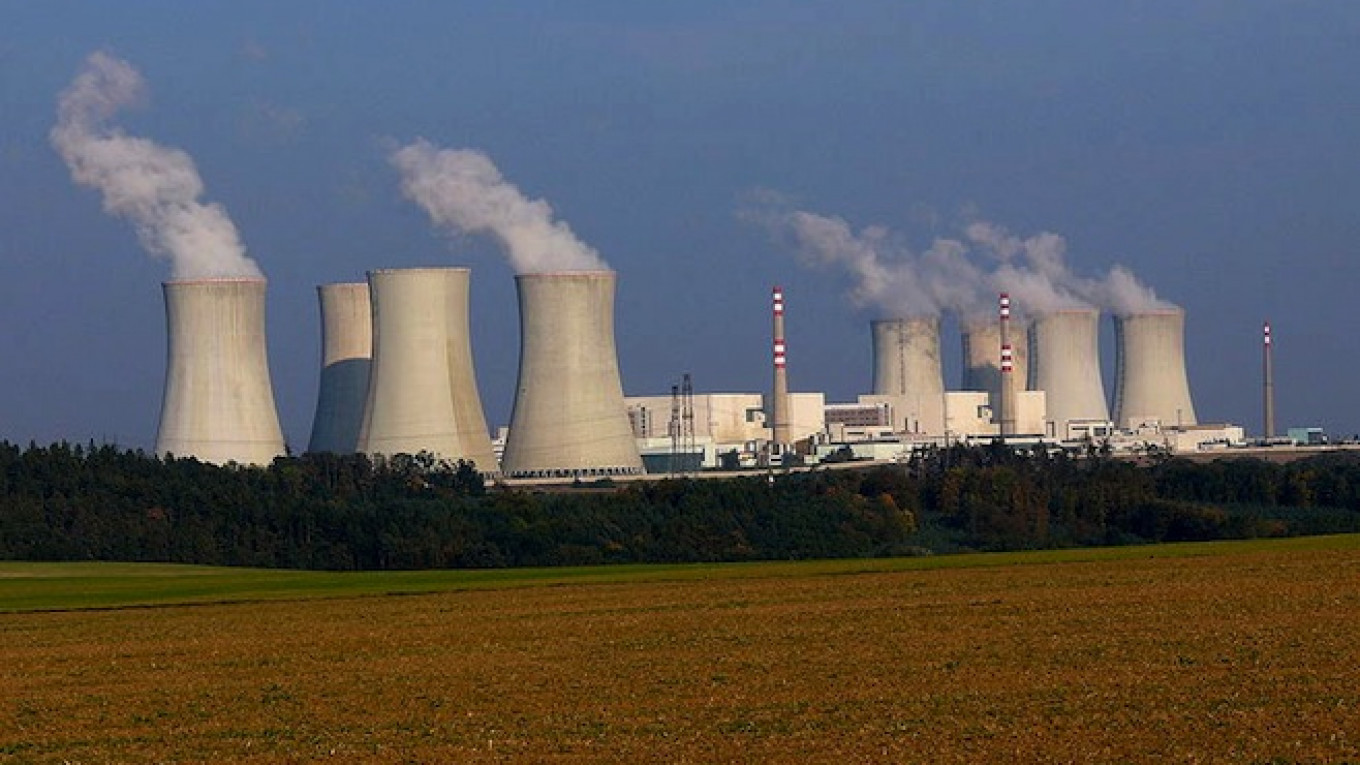Hungary and Russia will start work next year on expanding the central European country's sole nuclear power plant with two 1,200 megawatt blocks, which are expected to come online in 2025 and 2026, a Hungarian government commissioner said Tuesday.
President Vladimir Putin and Hungarian Prime Minister Viktor Orban agreed a construction-and-finance deal to build the new nuclear capacity in February, part of Hungary's closer ties with Moscow that have unnerved Western partners.
On Tuesday Hungary signed three implementation agreements with Russian Rosatom affiliate Atomenergoproekt on the planned expansion, the commissioner responsible for the project, Attila Aszodi, told a news conference.
The agreements dealt with the construction, future operation as well as fuel supply and waste management aspects of the new power blocks, he said.
Aszodi added the project would stay within the total budget of 12.5 billion euros ($15.5 billion) with room to spare. The 10 billion euros of Russian financing would cover a maximum of 80 percent of the costs.
He said the recent weakness of the Russian economy had no impact on the project, with ample assurances in the contract to carry out the expansion in full.
"The Russian partners have made it clear that the resources necessary for the program are in place, and the current economic situation does not affect the project," Aszodi said. "The funds for next year's tasks are in [Russia's] 2015 budget."
After initial engineering and regulatory work, Rosatom could start actual construction in 2018, Aszodi said, adding that the two blocks will take about six years to build.
Asked whether the European Commission might object to any part of the project, including potential state aid issues, he said it had been coordinated with the Commission and expected no problems.
"We showed our calculations and our deductions to the Commission and we are convinced there is no illegal state aid in this system," Aszodi said. "We received a favorable interstate loan, which will be used to build the plant."
"Thereafter the plant can work under market conditions, and the expected prices will enable it to sell the electricity so the project's profitability is ensured at an appropriate rate."
The opposition green liberal party LMP, the only opponent of nuclear power in Hungary, said on Tuesday that sticking with the Russian project was a mistake. The party has previously criticized the deal as untransparent, and said it is risky to depend on Russia for energy.
A Message from The Moscow Times:
Dear readers,
We are facing unprecedented challenges. Russia's Prosecutor General's Office has designated The Moscow Times as an "undesirable" organization, criminalizing our work and putting our staff at risk of prosecution. This follows our earlier unjust labeling as a "foreign agent."
These actions are direct attempts to silence independent journalism in Russia. The authorities claim our work "discredits the decisions of the Russian leadership." We see things differently: we strive to provide accurate, unbiased reporting on Russia.
We, the journalists of The Moscow Times, refuse to be silenced. But to continue our work, we need your help.
Your support, no matter how small, makes a world of difference. If you can, please support us monthly starting from just $2. It's quick to set up, and every contribution makes a significant impact.
By supporting The Moscow Times, you're defending open, independent journalism in the face of repression. Thank you for standing with us.
Remind me later.






